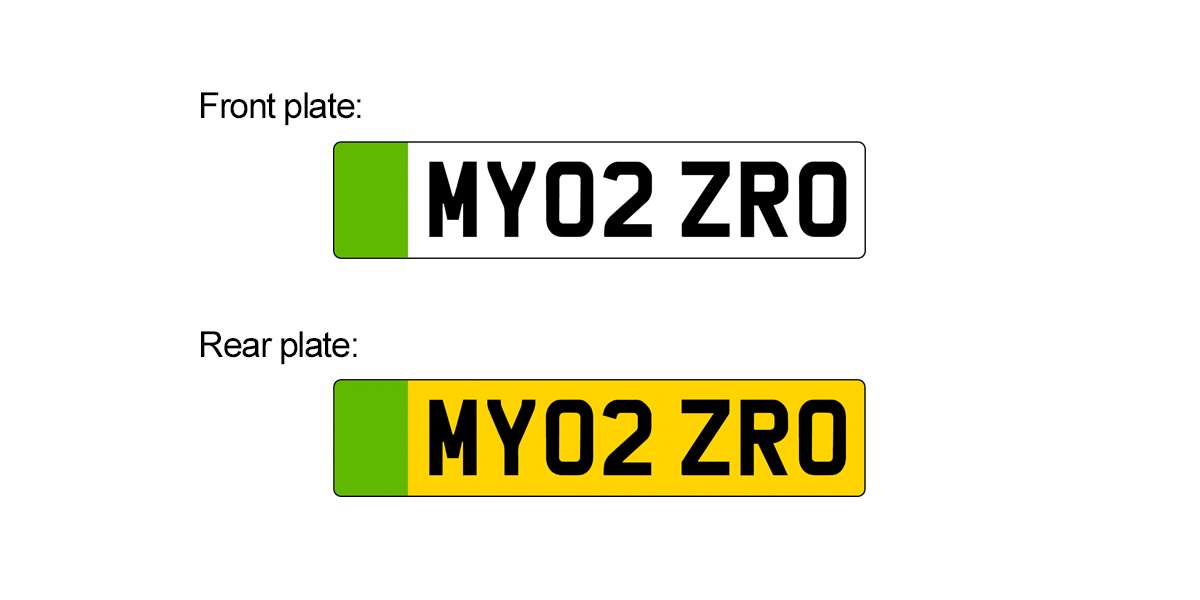UK to introduce EV license plates in Autumn
In the UK, special license plates for zero-emission vehicles will be introduced starting this autumn. The UK government has also announced £12 million in research and development grants.
The new green plates are only for zero-emission vehicles, including cars, vans, motorbikes, trucks, buses and coaches. The new plates are intended to make it easier for local authorities to issue special regulations for zero-emission vehicles.
The British government launched an official consultation on the introduction of green number plates in October 2019. Now the forthcoming launch from autumn 2020 is official. The design of the new green plates is also clear: The license plates for zero-emission vehicles are not completely green, but only have green stripes on the left-hand side, both on the front white and rear yellow license plates.
This form of EV marking is also made possible by the Brexit: the blue stripe for the EU number plates, which was previously placed on the left, will no longer be used. However, as the government has announced, the use of the number plate with a green marker is not obligatory, so electric vehicles can also be registered with a regular number plate.

The government hopes that the label will not only make it easier to grant benefits but also increase the visibility of clean mobility on the roads. “Green number plates could unlock a number of incentives for drivers and increase awareness of cleaner vehicles on our roads, showing people that a greener transport future is within our grasp,” says UK Transport Secretary Grant Shapps.
It remains to be seen what effect the green number plates will actually have in practice. In London, zero-emission vehicles are exempt from the congestion charge. However, this is not checked with the colour of the license plate, but with the database of the Driver and Vehicle Licensing Agency (DVLA) – so all electric vehicles are recorded, irrespective of whether they have regular or green license plates.
Transport Secretary Shapps further added: “We’re supporting small businesses to develop the transport tech of the future through a multi-million-pound investment.” Here, the government says they want to “further accelerate the government’s plans to drive a green recovery” with a £12 million fund for “ground-breaking research into the zero-emission market,” as the UK Government website states.
The bulk of this funding – up to £10 million – is earmarked for a competition, called the Zero Emission Vehicle Innovation Competition. For this, applicants are invited to bid for project funding to support advancements in both battery-electric and hydrogen vehicles, as well as charging infrastructure. Targeted are feasibility studies and R&D projects. These should be “6-month rapid-delivery projects to develop on-vehicle and charging technologies that will secure the future of the zero-emission vehicles (ZEV) industry in the UK,” as the dedicated website iterates. The funding is to be made available through the Office for Low Emission Vehicles (OLEV) and delivered through Innovate UK. The funding is aimed at projects that have eligible costs between £100,000 and £500,000 and must be led by a UK registered business.
In another initiative, OLEV is also administering £2 million to be awarded to small and medium businesses to “support their research into zero-emission vehicles in areas such as battery technology, which could be used by major vehicle manufacturers in future electric vehicle production.”
With additional reporting by Carrie Hampel





0 Comments